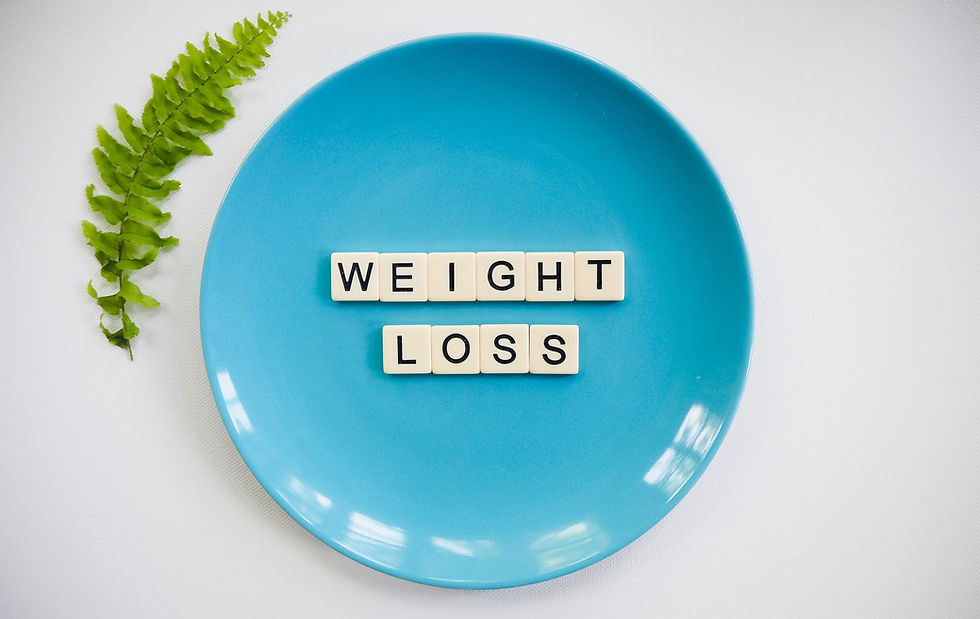Tips For Seasonal Depression
- Nicole Musap

- Oct 8, 2018
- 3 min read
Updated: Feb 9, 2019
Winter can be really rough, depending on where you live. In some regions, winter only means cold, dreary and gray.
For some, this is the time of year when seasonal depression (Or Seasonal Affective Disorder) may begin dragging you down. Seasonal depression usually starts and ends at the same times each year, beginning in the Fall and ending in the Spring/Summer.
How do you know if you’re suffering from seasonal depression? You may find yourself depleted of energy during these months and experiencing moodiness, weight gain, loss of concentration, loss of interest in usual activities and just not being your normal, chipper self.

Disclaimer: This post is for informational purposes only and not intended as medical advice. If you or someone you know is suffering from depression, please consult your healthcare professional.
What Causes Seasonal Depression?
Unfortunately, scientists cannot attribute seasonal depression 100% to one aspect specifically, but there are a few different theories.
Circadian Rhythm
Your body’s internal clock or sleep-wake cycle responds to changes between light and dark to regulate your sleep, mood, and appetite. The longer nights and shorter days of winter can disrupt your internal clock—leaving you feeling groggy, disoriented, and sleepy at inconvenient times.
Some scientists also say that hormones that are created deep in the brain can trigger attitude-related changes during certain times of the year
Production of Melatonin & Serotonin
When it’s dark, your brain produces the hormone melatonin to help you sleep and then sunlight during the day triggers the brain to stop melatonin production so you feel awake and alert. During the short days and long nights of winter, however, your body may produce too much melatonin, leaving you feeling drowsy and low on energy.
The reduced sunlight of winter can lower your body’s production of serotonin, a neurotransmitter that helps to regulate mood. A deficit may lead to depression and adversely affect your sleep, appetite, memory, and sexual desire.
Vitamin D Deficiency
Less time in the sun can also affect your vitamin D reserves, which is why vitamin D is known as the “Sunshine Vitamin”. Recent studies show that almost all Americans are deficient in Vitamin D, and the recommended amounts have increased. Vitamin D is necessary for a host of functions in the body from bone growth to modulation of cell growth, neuro-muscular and immune function and reduction of inflammation.
Natural Ways To Combat Seasonal Depression
It is important to distinguish between seasonal depression and other, potentially more serious disorders. It can sometimes be hard to tell the difference between SAD and other types of depression because many of the symptoms are the same. Always consider consulting your physician if your symptoms appear unmanageable or you are considering self harm or harm to others.
If you feel that you may have temporary seasonal depression, here are some natural remedies that may help.
Maximize Your Daily Exposure To Sunlight
Open up those blinds and make sure plenty of sunlight floods your office or home. Get up early to take advantage of the most sunlight you can. If possible, move your desk so you can sit by a window.
Wait until the warmest part of the day and go for a walk around the neighborhood.
Plan Activities That Make You Happy
Spend time with your friends and family. Plan weekend trips and fun activities that you can look forward to. Who says you have to use all your vacation time in the summer? Take a few days off and get away. Having fun events to look forward to throughout the Winter can break up the season very nicely.
Take Extra Care Of Your Body
Hopefully you are always treating your body great, but it’s always a good idea to give a little more TLC during the Winter. Limit caffeine, don’t forget your vitamins, get plenty of rest and eat a well-balanced diet. Exercise is essential to your health and your mental health all year round. Doing these things may naturally limit stress and the onset of seasonal depression.
Supplement Vitamin D
If you are not getting adequate sunlight every day, chances are that you are deficient in vitamin D.
Natural Sources of Vitamin D
The flesh of fatty fish like wild caught salmon, tuna, and mackerel contain good cources of vitamin D. Fish liver oils are among the best sources. Small amounts of vitamin D are also found in beef liver, cheese, and egg yolks. Some mushrooms provide vitamin D2 in variable amounts.
Vitamin D Supplements
For vitamin D, I reccomend taking one that has both vitamin D3 and vitamin K2 for best absorption of the vitamin D. The brand I use is Live Wise Naturals.
Talk About It
Most importantly, always talk to your close friends and family about how you’re feeling. Chances are that you are not alone, and the support of others may help you through these obstacles.
Love + Light,
Nicole Musap






Comments